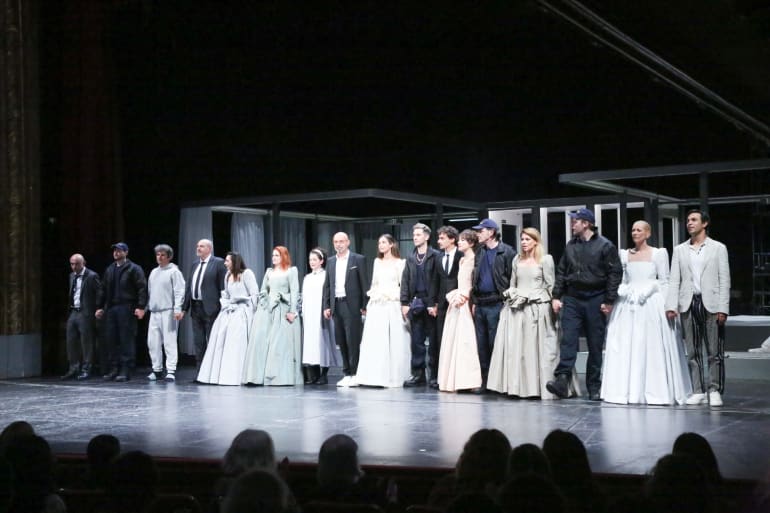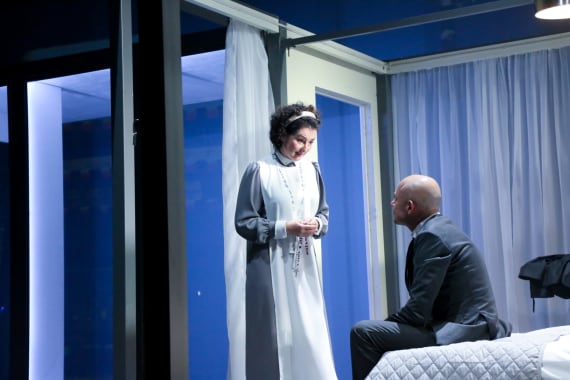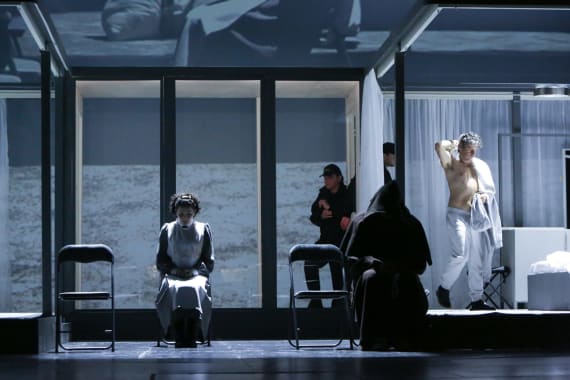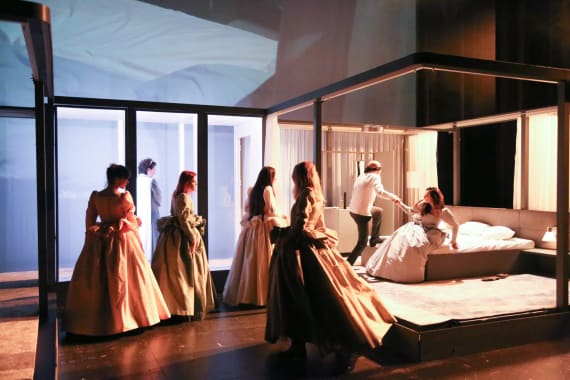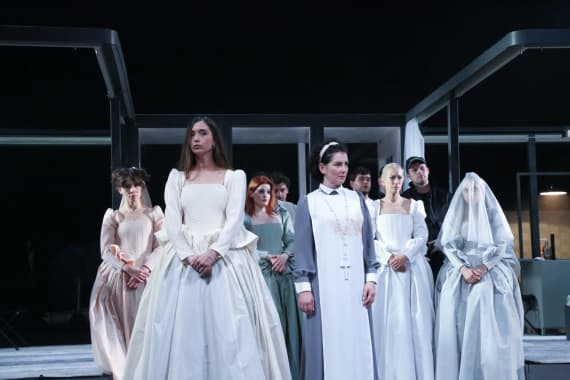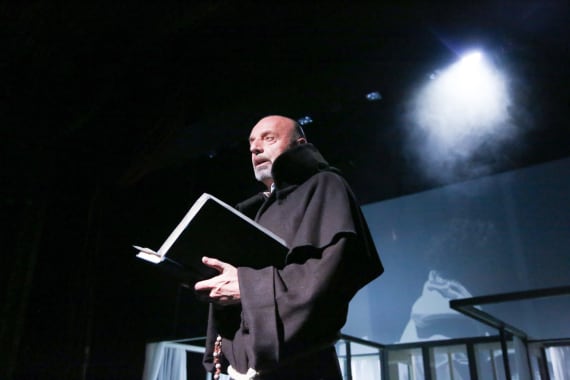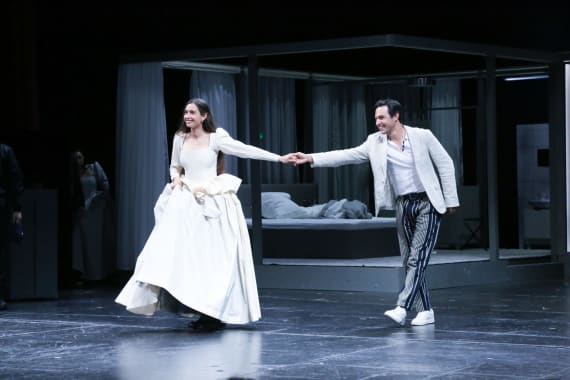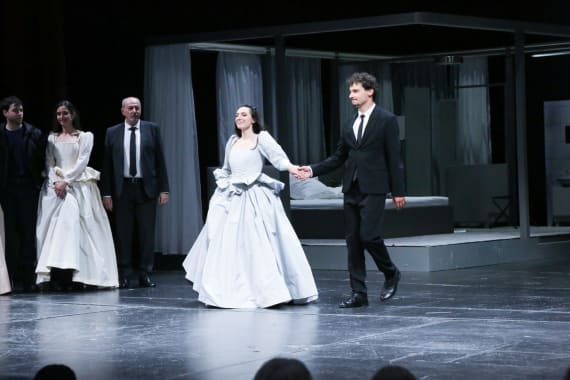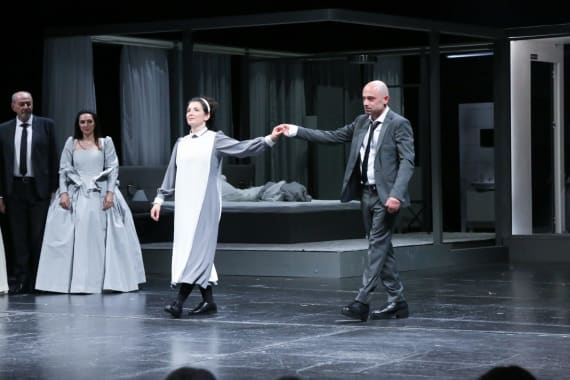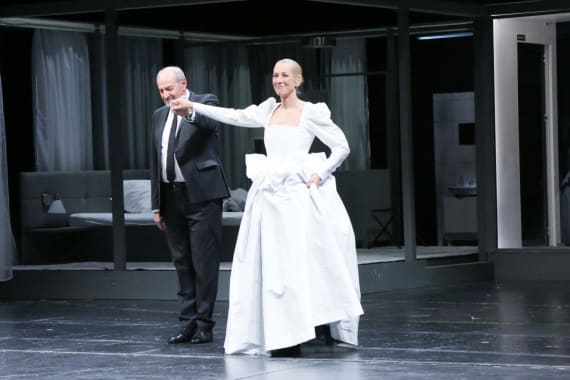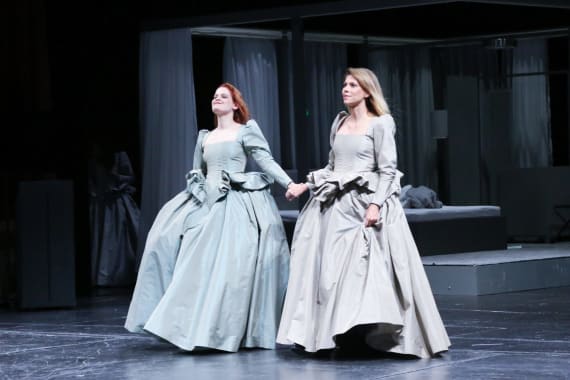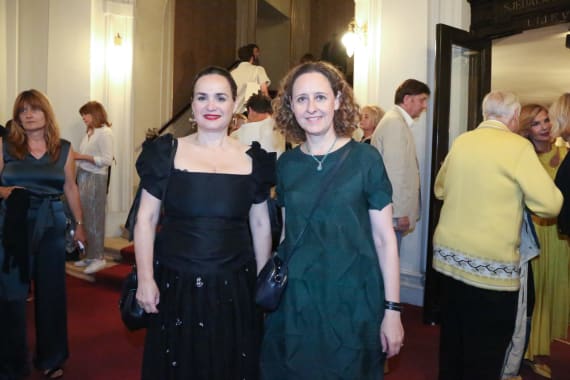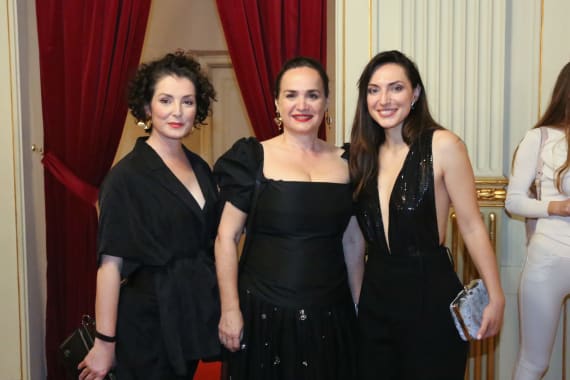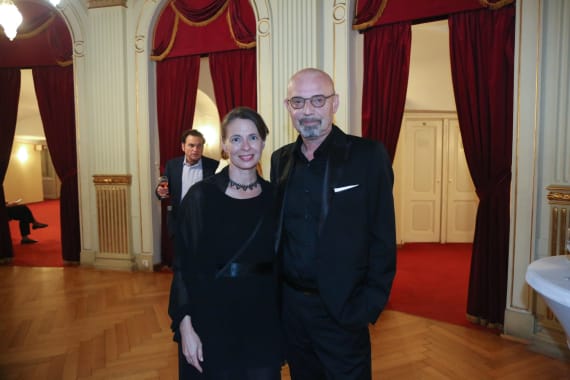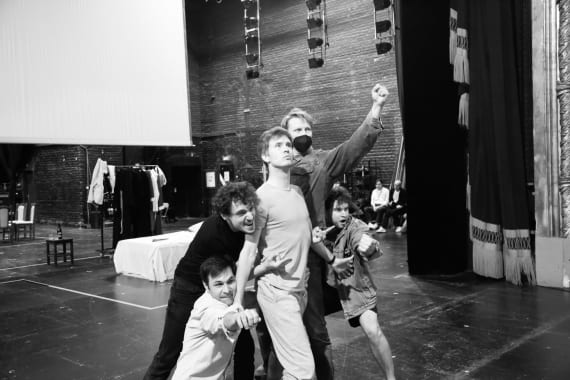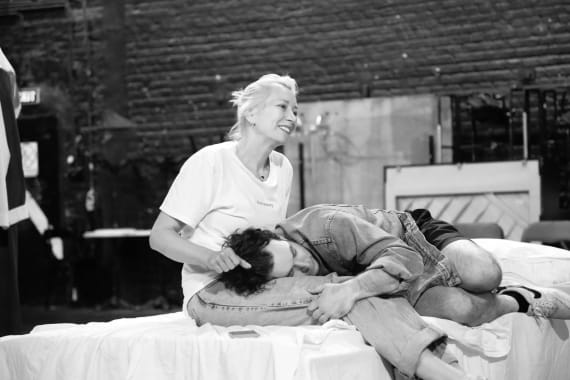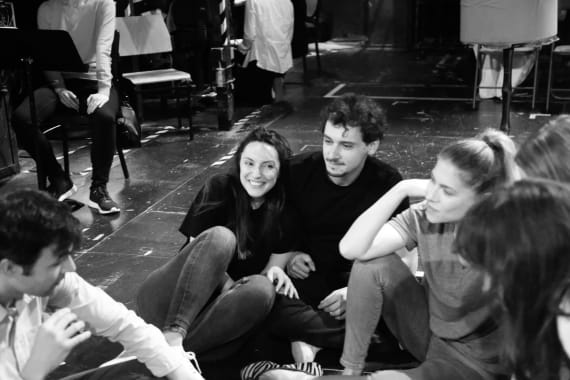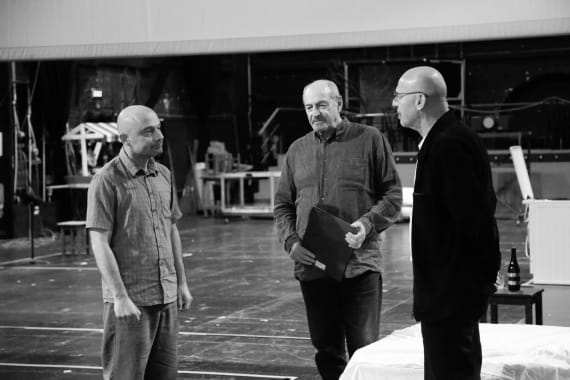Measure for Measure by William Shakespeare directed by Ivan Plazibat, this season's last drama premiereDrama — 09. June 2024.
This season's last drama premiere Measure for Measure written by one of the greatest world dramatists William Shakespeare, was premiered on June 7, 2024, at the Croatian National Theatre in Zagreb.
With this performance the stage director Ivan Plazibat continues to investigate the space between the theatre and film, the co-play between objective reality and subjective emotion. In the great interpretation of the drama ensemble of the CNT in Zagreb, it will be easy to imagine that we are travelling through time, somewhere between the 17th and the 21st centuries of Shakespeare's timeless comedy. The cast for one of the most intriguing works of Williama Shakespeare includes the best actors of the Drama of the CNT in Zagreb: Goran Grgić, Siniša Popović, Olga Pakalović, Ivan Colarić, Filip Vidović, Lana Barić, Iva Jerković Oreški, Luca Anić, Slavko Juraga, Dušan Bućan, Silvio Vovk, Iva Mihalić, Marin Klišmanić, Marin Stević, Jelena Perčin, Tesa Litvan and guest artist Dean Krivačić.
Along the central Shakespeare's plot that deals with the issues of power, violence and justice, dramaturgically and performatively we have been developing a line of backstories of supporting characters, primarily of female characters. Namely, at the time when the text was written, in society women were considered either to be virgins, wives or widows, and if they did not fall into any of these categories, they were easy women, or nuns as was the leading heroine, Isabella. We gave voice to those women and were interested to hear what they had to say about their position and rights in the society, especially about marriage as an economic transaction as Shakespeare presented it in this work, says Ivan Plazibat who is interested to find out what is happening when the reality of the 21st century enters Shakespeare through supporting characters and in which manner the performance then becomes theatrically and socially self-conscious.
The work was first premiered in London in 1604 and balances between tragedy and comedy. It poses a series of questions on morality, corruption, government, sacrifice and measure with which we evaluate ourselves and others. The performance is a bold interpretation in which the original text is combined with acting improvisation which simultaneously can entertain and scare, excite and male angry. This is a performance that passes from a folk comedy to a serious commentary on society, a performance that questions how power often deflects naïve young men and women who seek their space for emancipation.
